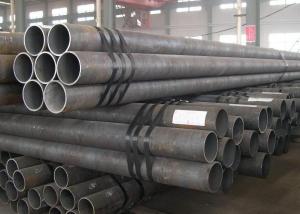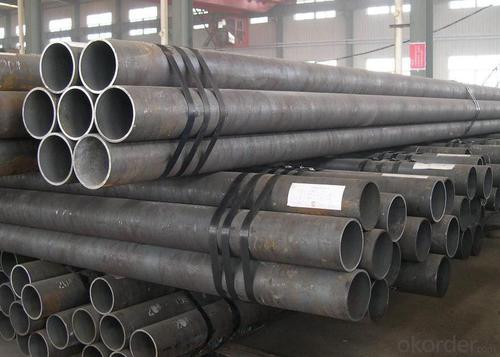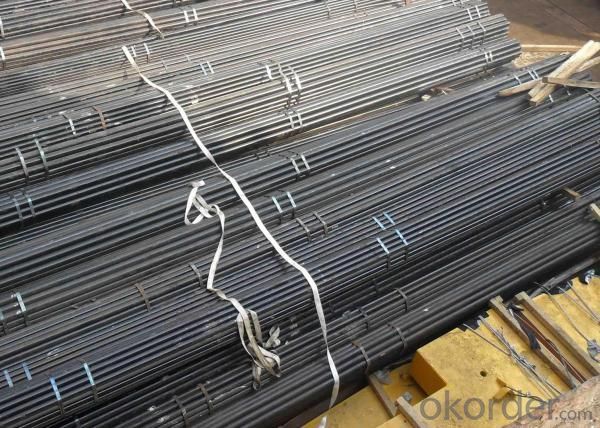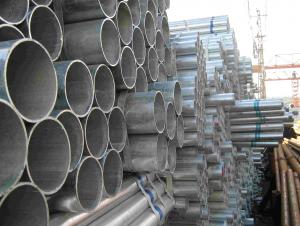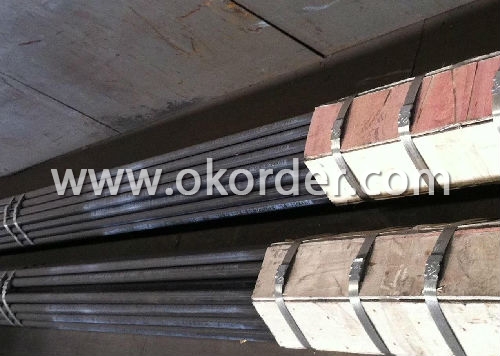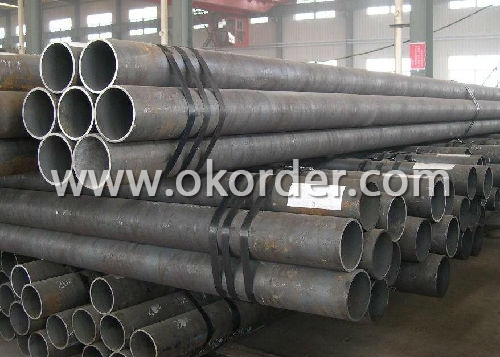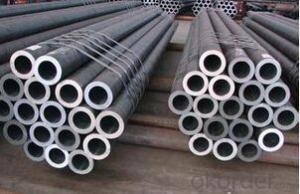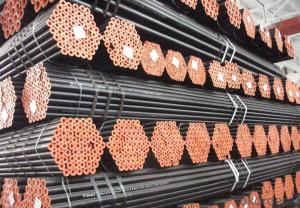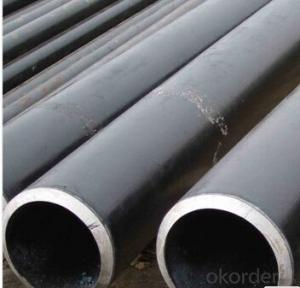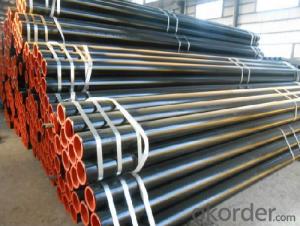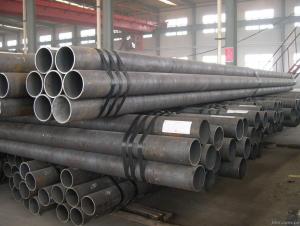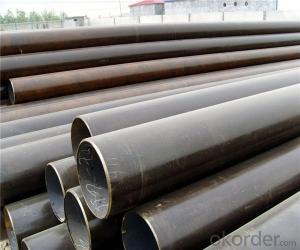High Quality Seamless Steel Tubes And Pipes For Low And Medium Pressure Boiler
- Loading Port:
- China Main Port
- Payment Terms:
- TT or LC
- Min Order Qty:
- 20MT m.t.
- Supply Capability:
- 5000 Tons Per Month m.t./month
OKorder Service Pledge
OKorder Financial Service
You Might Also Like
Specifications of High Quality Seamless steel tubes and pipes for low and medium pressure boiler:
Usage/Application of High Quality Seamless steel tubes and pipes for low and medium pressure boiler: It can be used for transmitting a large number of fluid. Such as oil, natural gas, water and some solid materials. At the same time it can be widely used as the manufacture of various structural parts and mechanical parts, as well as building construction.
Packaging/Delivery of High Quality Seamless steel tubes and pipes for low and medium pressure boiler: Wrapped in bundles with steel strips or according to customers' requirements
| |||||||||||||||||||||||||||||||||||||||||||||||||||||||||||
- Q: Are steel pipes resistant to corrosion?
- Yes, steel pipes are generally resistant to corrosion due to the protective layer of oxide that forms on their surface, but their resistance can vary depending on the specific grade of steel and the environment they are exposed to.
- Q: What is the difference between carbon steel and cast iron pipes?
- The main difference between carbon steel and cast iron pipes lies in their composition and manufacturing processes. Carbon steel pipes are made from an alloy of iron and carbon, with additional elements such as manganese and silicon added for specific properties. They are typically stronger and more durable, making them suitable for high-pressure and heavy-duty applications. On the other hand, cast iron pipes are made by melting iron and pouring it into molds, resulting in a more brittle and less flexible material. Cast iron pipes are commonly used for drainage and sewage systems due to their corrosion resistance and sound insulation properties.
- Q: How are steel pipes used in the manufacturing of aerospace components?
- Steel pipes are used in the manufacturing of aerospace components for various purposes such as supporting structures, fuel systems, hydraulic and pneumatic systems, and exhaust systems. They provide strength, durability, and resistance to extreme temperatures and pressure, making them suitable for critical applications in the aerospace industry.
- Q: Can steel pipes be used for hydronic heating systems?
- Yes, steel pipes can be used for hydronic heating systems. Steel pipes are commonly used in hydronic heating systems due to their durability, strength, and ability to withstand high temperatures and pressures. They are also resistant to corrosion, making them suitable for long-term use in these systems.
- Q: What are the different types of coatings used for steel pipes?
- There are several types of coatings used for steel pipes, including epoxy coatings, polyethylene coatings, fusion bonded epoxy coatings, and zinc coatings. Each type of coating offers different benefits and is used for specific applications to protect the steel pipes from corrosion and improve their durability.
- Q: What's the gate number of the precision steel pipe?
- Precision steel pipe refers to the high precision steel pipe, the wall thickness and internal and external diameter can be controlled within 10 wire tolerance range
- Q: How are steel pipes used in the construction of oil-fired power plants?
- Steel pipes are commonly used in the construction of oil-fired power plants for various purposes. They are primarily utilized for the transportation of oil and other fluids within the plant, including fuel oil, lubricants, and cooling water. Steel pipes are also used for the installation of high-pressure steam and water lines, as well as for the construction of exhaust systems, ventilation ducts, and other structural components. Overall, steel pipes play a crucial role in ensuring the efficient and reliable operation of oil-fired power plants.
- Q: How long do steel pipes last?
- Steel pipes can last for several decades, typically around 50 to 100 years, depending on various factors such as the quality of the steel, the environment they are exposed to, and proper maintenance and care.
- Q: Where is the difference between seamless steel pipe and welded pipe?
- Seamless pipe pressure is higher, welded pipe is generally in 10 or so MPa, now welded pipe to do seamless processing.
- Q: How are steel pipes connected in pipeline construction?
- Steel pipes are connected in pipeline construction through various methods, including welding, threading, and flanges. Welding involves joining the pipes by melting the edges and fusing them together, creating a strong and continuous connection. Threading involves screwing the pipes together using threaded ends, ensuring a secure connection. Flanges are used to connect pipes with the help of bolts, providing a detachable yet sturdy connection. These methods ensure the integrity and safety of the pipeline system.
1. Manufacturer Overview
| Location | Jiangsu, China |
| Year Established | 1992 |
| Annual Output Value | 60,000Tons |
| Main Markets | Europe and the United States;Canada; India;Bulgaria; South Korea;etc. |
| Company Certifications | API 5L;API 5CT;GB/T19001-2008 idt ISO9001:2008 |
2. Manufacturer Certificates
| a) Certification Name | |
| Range | |
| Reference | |
| Validity Period |
3. Manufacturer Capability
| a) Trade Capacity | |
| Nearest Port | Yan Cheng |
| Export Percentage | 50% - 60% |
| No.of Employees in Trade Department | 400-500 People |
| Language Spoken: | English; Chinese; Spanish |
| b) Factory Information | |
| Factory Size: | Above 110,000 square meters |
| No. of Production Lines | Above 10 |
| Contract Manufacturing | OEM Service Offered; Design Service Offered |
| Product Price Range | Average |
Send your message to us
High Quality Seamless Steel Tubes And Pipes For Low And Medium Pressure Boiler
- Loading Port:
- China Main Port
- Payment Terms:
- TT or LC
- Min Order Qty:
- 20MT m.t.
- Supply Capability:
- 5000 Tons Per Month m.t./month
OKorder Service Pledge
OKorder Financial Service
Similar products
Hot products
Hot Searches
Related keywords
